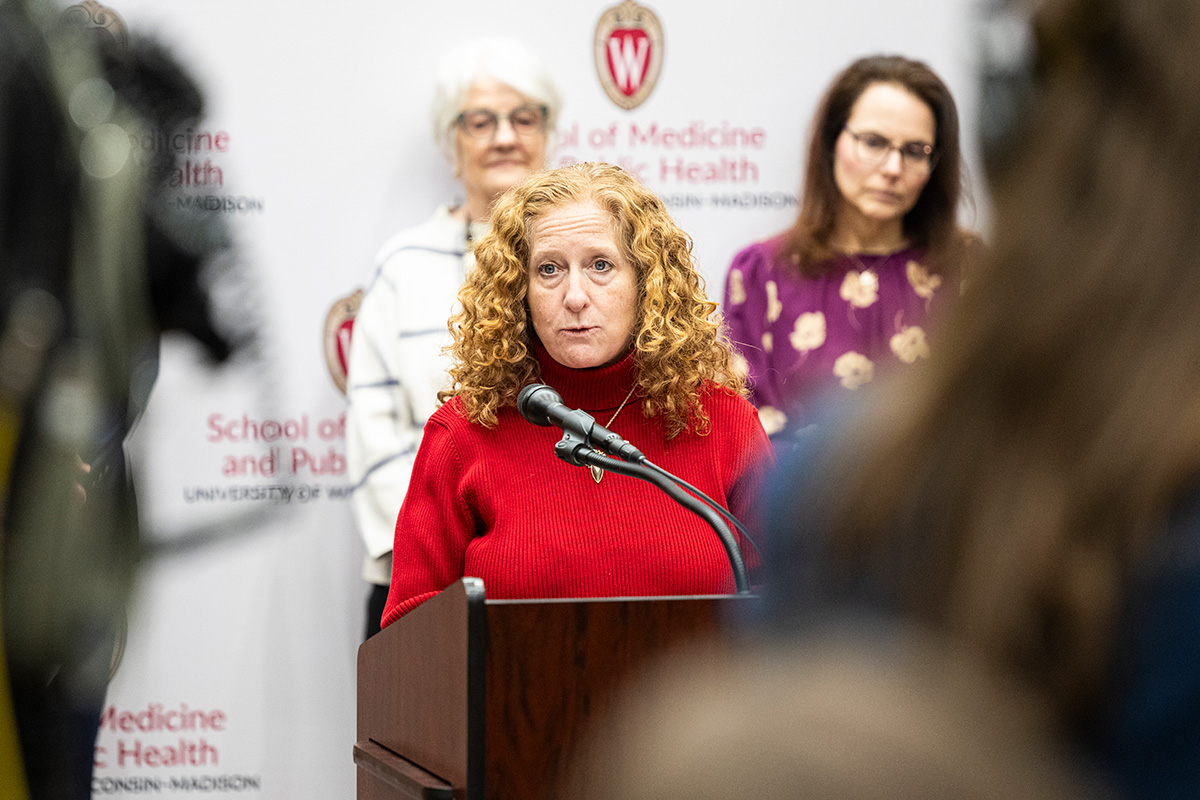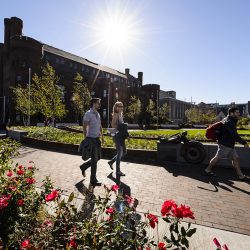UW Advocates for Research Funding
Campus leaders tout the lifesaving benefits of the National Institutes of Health.

Mnookin: “These cuts harm our ability to train our students to be global leaders.” Bryce Richter
UW–Madison and the Universities of Wisconsin, along with industry, university, hospital, and health system partners, are urging Wisconsin’s congressional leaders to protect funding for the National Institutes of Health (NIH), which drives groundbreaking research, lifesaving treatments, and economic growth in the state.
In a March 5 letter, 34 bio-health companies, health systems, industry associations, and research organizations asked Congress to oppose significant NIH cuts.
At a subsequent news conference on the UW campus, representatives of the group emphasized the importance of NIH funding in maintaining a strong bio-health ecosystem in the state, as well as the direct effect of federally funded research on addressing diseases such as Alzheimer’s.
“Indiscriminate reductions in research funding like those we’re facing right now pose significant risk to our state and nation’s future,” said UW–Madison chancellor Jennifer L. Mnookin. “These cuts harm our ability to make critical, lifesaving discoveries and to train our students to be global leaders. They will also damage our nation’s innovation economy and our international competitiveness.”
At UW–Madison, more than 2,700 clinical trials — serving 20,000 patients — rely on NIH support. This includes experimental treatments for cancer, Alzheimer’s disease, and other persistent health challenges.
UW–Madison professor of medicine Sterling Johnson leads the Wisconsin Registry for Alzheimer’s Prevention (WRAP) study, which seeks to diagnose Alzheimer’s disease years before people develop symptoms and identify ways to slow down the disease. Johnson said that when it comes to seeking prevention and treatments for Alzheimer’s, delaying research and innovation is not an option. He stressed that the disease continues to grow at an alarming rate, with the number of people afflicted expected to rise by 44 percent over the next 15 years.
This sense of urgency has motivated Sigrid Knuti ’64, a volunteer WRAP study participant since 2005, who advocated for continued federal investment in Alzheimer’s research.
“I want this generation to end Alzheimer’s,” Knuti said, “and I’m counting on Sterling and the University of Wisconsin to get it done.
Published in the Summer 2025 issue



Comments
No comments posted yet.